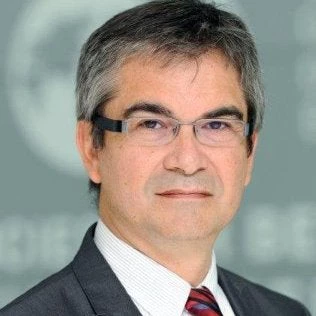Also available in: Español | Français | Arabic
Yesterday, I was reminded of what it means to be young again: eager faces, fresh idealism, and boundless energy animated the IFC auditorium as more than 300 young leaders from government, civil society, development, and academia packed the IFC auditorium for the World Bank Group’s Youth Summit on “The Need for Open and Responsive Governments.”
I had the pleasure of moderating the first plenary session of the summit – a lively discussion exploring how we can give youth a voice in the open government process and ensure that public services address their needs.
The panelists were Ahmad Alhendawi, UN Envoy for Youth; Edith Jibunoh, World Bank Group Civil Society Advisor; Nigel Chapman, President and CEO of Plan International; and Frank Vogl, Co-Founder of Transparency International.
To kick off the discussion, I started with the issue of trust. We know, unfortunately, that trust in government is at a historic low . According to the Edelman Trust Barometer, in both Middle Income and Low Income Countries, only 17% of the respondents felt their government listens to them. Only 16% felt their government had transparent and open practices, and again only 16% felt their government communicated frequently and honestly.
These are grim numbers. So what do citizens want? To better understand this, the World Bank Group conducted a Global Open Government Survey. Across the globe, from Mexico to Mongolia, what we heard is loud and clear: youth demand open government. They want honest, transparent, and accessible governments that work for everyone.
UN Envoy for Youth Ahmad Alhendawi made the point that although youth make up half of the world’s population, only 1% of MPs around the world are under 30. “We must engage young people in the political process so they can achieve real impact on their own lives,” Alhendawi said. He has advocated for the inclusion of youth advisory boards in UN country offices, and country teams that have put these boards into place are learning valuable lessons from the knowledge and perspectives that young people bring to the table.
WBG Civil Society Advisor Edith Jibunoh spoke about her own experience returning to Nigeria to work as a young staffer in the Nigerian government. Although initially she had complete distrust in her own country’s government, she soon had a change of heart as she witnessed firsthand the power of youth in action. Whether on fuel subsidies or election issues, Nigerian youth are on the forefront of harnessing social media tools and establishing their role as influencers. Jibunoh was heartened to find quiet, honest allies who were willing to push for reform in the face of often corrupt systems.
Transparency International (TI) co-founder Frank Vogl spoke passionately about his admiration for the thousands of young people who, despite many risks, have joined TI’s 100 national chapters to help fight corruption so all can live a dignified life. Youth are not waiting for international institutions to act; through civil society movements, they are taking action on the ground, mobilizing social networks, and making a difference in their local communities.
President and CEO of Plan International Nigel Chapman shared how, after grassroots pressure in the 40 countries where Plan operates, they now have a group of youth advisors who help shape Plan’s program priorities and decisions. After initial skepticism, Chapman now welcomes and fully appreciates the passion, realism, and effectiveness of youth voices and paid tribute to the Plan youth advisors for their commitment and egalitarian values.
The spirited discussion ended on a positive note as we all urged the young leaders in the room to make their voices heard and continue engaging in meaningful dialogues with their governments- and to put real meaning to the words reciprocity, responsiveness, and collaboration.
We often look back on historical events to inspire us to change things for the future. As I reflect on the recent anniversary of the vote against the Pinochet dictatorship in Chile, I realize that when things seem impossible, with concerted energy, they can be done.


Join the Conversation